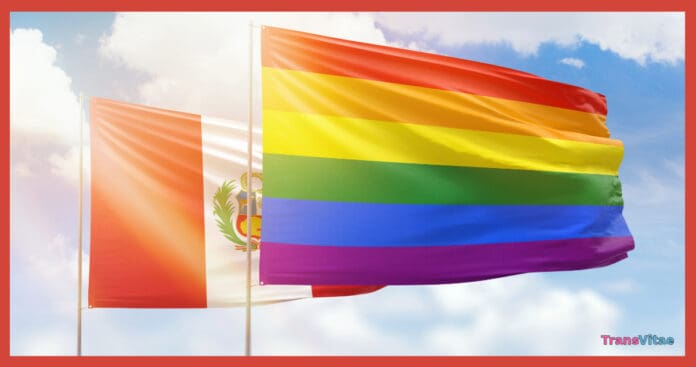In a significant policy reversal, Peru’s Ministry of Health announced on Tuesday that it will cease classifying transgender identities as mental disorders. This decision follows intense criticism and protests from the LGBTQ+ community and human rights groups, who decried the previous decree as discriminatory and regressive.
The Initial Decree and Public Outcry
In a decree that President Dina Boluarte signed, the Peruvian government classified gender identity disorders, cross-dressing, and transgender identities as mental illnesses, which sparked the debate. This classification was intended to provide access to mental health services through both public and private providers. However, it sparked widespread backlash.
Hundreds of protesters took to the streets of Lima on May 17th, coinciding with the International Day Against Homophobia, Transphobia, and Biphobia. Activists, including Gianna Camacho of the Coordinacion Nacional LGTBIQ+, vocally opposed the decree, asserting that it perpetuated harmful stereotypes and stigmatization. “We demand the repeal of this transphobic and violent decree, which goes against our trans identities in Peru,” Camacho declared during the protest. The decree was described as “profoundly regressive” by Human Rights Watch, highlighting that Peru does not recognize same-sex marriage nor allow transgender individuals to change their identity documents.
RELATED: Peruvian Decree Classifies Trans Identities as Mental Disorders
Government Reversal: A Step Towards Inclusivity
Responding to the mounting pressure, the Ministry of Health issued a statement on Tuesday, announcing the removal of transgender identities from the list of mental disorders. Instead, the term “gender discordance” will be used for mental and behavioral health classifications. This change aims to ensure that transgender individuals can access necessary mental health care without the stigma of being labeled mentally ill.
The ministry emphasized its commitment to respecting the dignity and human rights of all individuals. “We respect the dignity of the person and their free actions within the framework of human rights that provide health services for their benefit,” the statement read. By adopting this more respectful terminology, Peru aligns itself with modern medical standards and international human rights practices.
The Importance of This Reversal
The initial decree’s classification of transgender identities as mental disorders was a significant step backward for LGBTQ+ rights in Peru. It ignored the consensus of major medical organizations, including the World Health Organization, which removed transgender identities from its list of mental disorders in 2019. The classification perpetuated the harmful myth that transgender individuals are inherently mentally ill, contributing to discrimination and social ostracization.
Alex Hernandez, a psychologist from the feminist organization ‘More Equality’, explained the significance of the government’s reversal: “This change in the diagnostic manual sends a powerful message to citizens, politicians, and authorities that international and scientific progress confirms that LGBT people, particularly trans people, do not have any illness. It’s a victory for visibility and human rights.”
Looking Forward: A More Inclusive Peru
Peru’s decision to update its classification system represents a crucial step towards reducing discrimination and improving the mental health and well-being of the LGBTQ+ community. By acknowledging the autonomy and dignity of transgender individuals, the government is fostering a more inclusive society.
The Ministry of Health’s decision to reclassify transgender identities as “gender discordance” is also a step towards ensuring that transgender individuals receive appropriate mental health care. This terminology recognizes the unique challenges faced by transgender people without pathologizing their identities.
Continuing the Fight for Trans Rights
While the recent policy change is a positive development, there is still much work to be done to achieve full equality for transgender individuals in Peru. The country does not yet recognize same-sex marriage or allow transgender individuals to change their identity documents, leaving many without legal recognition and the accompanying rights.
The reversal of the decree should serve as a catalyst for further reforms. Activists and allies must continue to advocate for comprehensive legal and social changes that protect and affirm the rights of transgender individuals.
Empathy and Understanding: Key to Progress
For the transgender community, the struggle for recognition and respect is deeply personal. The initial decree’s classification was not just a bureaucratic error; it was a denial of their identities and experiences. The backlash and subsequent reversal serve as a reminder of how crucial it is to hear and amplify the voices of those who are most directly impacted by such policies.
By fostering empathy and understanding, society can move towards greater inclusivity and support for all individuals, regardless of their gender identity. The Peruvian government’s decision to reverse its stance on transgender identities is a step in the right direction, but it is just one part of a broader movement towards equality.
The Bottom Line
Peru’s recent decision to stop classifying transgender identities as mental disorders marks a significant victory for the LGBTQ+ community and human rights advocates. The reversal of the discriminatory decree and the adoption of the term “gender discordance” reflect a growing recognition of the importance of respect and dignity for all individuals.
As Peru moves forward, it must continue to listen to the voices of transgender individuals and advocate for policies that promote inclusivity and equality. The fight for transgender rights is far from over, but each step forward brings us closer to a world where everyone is valued and respected for who they are.


